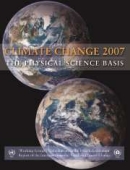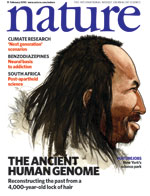 A couple of days ago one of Hot Topic’s denialist commenters triumphantly waved a UK Sunday Times article claiming that the IPCC had erred not only in relation to the likely rate of melting of Himalayan glaciers but also in linking global warming to an increase in the number and severity of natural disasters.
A couple of days ago one of Hot Topic’s denialist commenters triumphantly waved a UK Sunday Times article claiming that the IPCC had erred not only in relation to the likely rate of melting of Himalayan glaciers but also in linking global warming to an increase in the number and severity of natural disasters.
I had a quick look at the IPCC report referred to and responded by pointing out that the section pointed to by the Sunday Times wasn’t about the frequency of extreme events but about their costs.
I think the matter is worth longer treatment than I gave it there, because it is an example of shocking carelessness, if not deliberate misrepresentation, passing itself off as responsible journalism on climate change. The Sunday Times article was written by Jonathan Leake, their science and environment editor.
We’ve caught the IPCC at it again, he virtually proclaims. The IPCC has based its claims that natural disasters are increasing as a result of global warming on an unpublished report that had not been subjected to routine scientific scrutiny. On this slender basis developing nations have demanded compensation from rich nations and Ed Miliband, Barack Obama and Gordon Brown have been led into exaggerated statements.
It was news to me that the whole question of the frequency of severe events rested on a single report, and it rapidly becomes apparent in Leake’s report that he is confused (I hope not disingenuous). Here is what he writes:
“The new controversy also goes back to the IPCC’s 2007 report in which a separate section warned that the world had ‘suffered rapidly rising costs due to extreme weather-related events since the 1970s’.
“It suggested a part of this increase was due to global warming and cited the unpublished report, saying: ‘One study has found that while the dominant signal remains that of the significant increases in the values of exposure at risk, once losses are normalised for exposure, there still remains an underlying rising trend.’”
Costs? Losses? This must surely be from Working Group II of the IPCC which deals with the impacts of climate change, not from Working Group I which deals with the physical science. And so it proved. The study he talks about is by Robert Muir-Wood, of the London consultancy Risk Management Solutions. It is referred to in a short section on economic and insurance losses, part of a longer section on disasters and hazards. The inference that this paper is the basis of the IPCC’s findings on the frequency and severity of natural disasters is simply ridiculous. Here is what the IPCC says of Muir-Woods paper:
“A global catalogue of catastrophe losses was constructed (MuirWood et al., 2006), normalised to account for changes that have resulted from variations in wealth and the number and value of properties located in the path of the catastrophes, using the method of Landsea et al. (1999). The global survey was considered largely comprehensive from 1970 to 2005 for countries and regions (Australia, Canada, Europe, Japan, South Korea, the USA, Caribbean, Central America, China, India and the Philippines) that had centralised catastrophe loss information and included a broad range of peril types: tropical cyclone, extratropical cyclone, thunderstorm, hailstorm, wildfire and flood, and that spanned high- and low-latitude areas.
“Once the data were normalised, a small statistically significant trend was found for an increase in annual catastrophe loss since 1970 of 2% per year (see Supplementary Material Figure SM1.1). However, for a number of regions, such as Australia and India, normalised losses show a statistically significant reduction since 1970. The significance of the upward trend is influenced by the losses in the USA and the Caribbean in 2004 and 2005 and is arguably biased by the relative wealth of the USA, particularly relative to India.”
A restrained statement, I’d have thought, and certainly staying firmly within the topic of costs, not using the Muir-Wood paper as a basis for evidence on the wider question of increased frequency of severe events. There are statements in many places in the IPCC report about changes in extremes and disasters, and it is absurd to treat this one section and this one paper as the basis of what it has to say. How on earth does a journalist carrying the responsibility for science and environment on a major newspaper not know that? I was pleased to see the IPCC issue a statement on Monday firmly refuting the Sunday Times article as misleading and baseless. The first point their statement makes is:
“[The Sunday Times article] incorrectly assumes that a brief section on trends in economic losses from climate-related disasters is everything the IPCC Fourth Assessment Report (2007) has to say about changes in extremes and disasters. In fact, the Fourth Assessment Report reaches many important conclusions, at many locations in the report, about the role of climate change in extreme events. The assessment addresses both observations of past changes and projections of future changes in sectors ranging from heat waves and precipitation to wildfires. Each of these is a careful assessment of the available evidence, with a thorough consideration of the confidence with which each conclusion can be drawn.”
(A convenient summary of what Working Group I has to say may be seen in their Frequently Asked Questions section . The question ‘Has there been a change in extreme events?’ is responded to on p.107, and the question ‘Can Individual Extreme Events be Explained by Greenhouse Warming?’ on p.119. Both answers are restrained and cautious.)
But even on the matter of trends in economic losses and disasters the Sunday Times has grossly misrepresented the IPCC, as Monday’s IPCC refutation adds:
“The second problem with the article in the Sunday Times is its baseless attack on the section of the report on trends in economic losses from disasters. This section of the IPCC report is a balanced treatment of a complicated and important issue. It clearly makes the point that one study detected an increase in economic losses, corrected for values at risk, but that other studies have not detected such a trend. The tone is balanced, and the section contains many important qualifiers. In writing, reviewing, and editing this section, IPCC procedures were carefully followed to produce the policy-relevant assessment that is the IPCC mandate.”
The full section is here on p.110 if you want to check the veracity of that judgement.
The Sunday Times article is simply untrue. It is lazy, sloppy journalism at best, deliberate misinformation at worst. It has been taken up trumphantly by the denialist world and reported widely and uncritically by other newspapers. I hope the paper is ashamed of what it has achieved, but I fear it will be rejoicing at the attention it has gained.
Like this:
Like Loading...
 An opinion piece in this week’s Nature features the views of five diverse climate scientists on how the IPCC might be reformed or restructured in the light of the recent fuss about “errors” in AR4. The headine asks if we should “cherish it, tweak it or scrap it?” It makes interesting reading (it’s behind a paywall, unfortunately), but here’s a summary.
An opinion piece in this week’s Nature features the views of five diverse climate scientists on how the IPCC might be reformed or restructured in the light of the recent fuss about “errors” in AR4. The headine asks if we should “cherish it, tweak it or scrap it?” It makes interesting reading (it’s behind a paywall, unfortunately), but here’s a summary.
 Jonathan Leake at the UK
Jonathan Leake at the UK  When I was writing the
When I was writing the